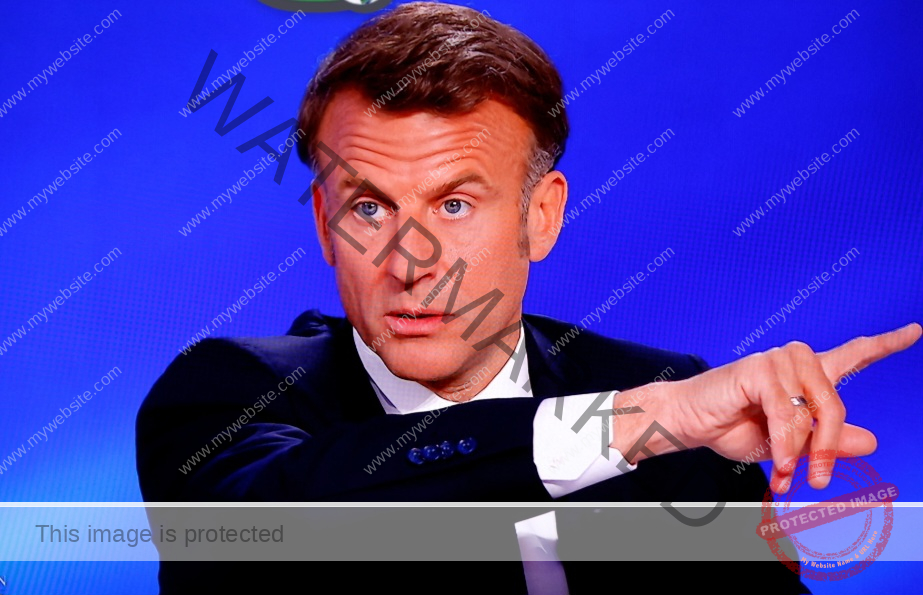Four prime ministers in 13 months and a fractured National Assembly after the July 2024 snap elections have left Macron isolated. His attempt to cast himself as guarantor of the institutions is widely dismissed as hollow. Polls show that two-thirds of French citizens now want his resignation.
By The Independentist editorial Desk
Paris October 13, 2025 – French President Emmanuel Macron has finally stepped into the public arena after weeks of silence, attempting to contain the political storm engulfing France. Speaking in Sharm El-Sheikh during the Gaza “peace summit,” Macron blamed unnamed “destabilizing forces” for fueling division and speculation, accusing them of failing to rise to the gravity of the national moment. His intervention comes after the resignation of Sébastien Lecornu, his trusted protégé, and the controversial decision to reappoint him to form a new government within five days.
Macron’s remarks have had the opposite effect of what he intended. Instead of stabilizing the political climate, they intensified it. In a rare alignment, Marine Le Pen’s far-right National Rally and Jean-Luc Mélenchon’s far-left France Unbowed filed motions of censure against Lecornu’s government, expected to be debated this week. Within Macron’s own centrist bloc, fault lines are widening. Traditional right-wing Les Républicains are also splintering after several members accepted cabinet positions against the party base’s wishes, cornering their leader Bruno Retailleau.
Four prime ministers in 13 months and a fractured National Assembly after the July 2024 snap elections have left Macron isolated. His attempt to cast himself as guarantor of the institutions is widely dismissed as hollow. Polls show that two-thirds of French citizens now want his resignation.
Jordan Bardella, Marine Le Pen’s political heir, captured the national mood: “The majority of French people want the dissolution of the Assembly, and two-thirds want the resignation of the President. If we want to be French again, let’s hold new elections.”
An Ambazonian Perspective: When the Metropole Trembles
For Ambazonians, this is not simply another chapter in French domestic politics. It is the visible cracking of a colonial center that has, for decades, orchestrated and sustained the annexation of Ambazonia through military aid, diplomatic shielding, and economic exploitation.
France has consistently projected itself as a pillar of stability while underwriting destabilization abroad, especially in Ambazonia. It has supplied weapons to the colonial army, used its diplomatic weight to suppress debates at the UN, and kept the sub-region economically dependent through the CFA franc. Now, Macron finds himself presiding over a fragmented Assembly, squeezed between far-right populism and left-wing insurgency at home.
The weakening of France’s internal cohesion will inevitably affect its capacity to act as the guarantor of Yaoundé’s military occupation and economic plunder. A government busy surviving domestic censure motions has little time to manage imperial outposts.
Strategic Implications for Ambazonia
First, French distraction opens an opportunity to intensify international pressure on Cameroon. Diplomatic shielding from Paris, long a major obstacle at multilateral forums, may weaken as internal French politics demand attention.
Second, Macron’s rhetoric about “stability” collapsing against his own record of instability exposes France’s hypocrisy in lecturing African nations on governance. Ambazonian advocates can use this moment to challenge France’s moral authority at the African Union, United Nations, and other platforms.
Third, the convergence between Le Pen’s far right and Mélenchon’s far left against Macron mirrors new political realignments across Africa, where diverse forces are pushing back against French domination. This may disrupt the continuity of Françafrique policies that have persisted across party lines for decades.
Finally, a weakened France accelerates the emergence of a multipolar context in which Ambazonia can build alternative alliances with regional actors and non-Western powers less invested in maintaining Yaoundé’s colonial occupation.
A Colonial Order in Decline
Macron’s finger-pointing cannot conceal the deeper reality: France is entering a period of internal reckoning. Its imperial reflexes are colliding with domestic fragmentation. For Ambazonia, this is a strategic moment. It is not a time to watch from the sidelines but to act—to expose France’s role in sustaining annexation, to deepen diplomatic offensives, and to assert Ambazonian sovereignty while the old metropole trembles.
The Independentist editorial Desk

